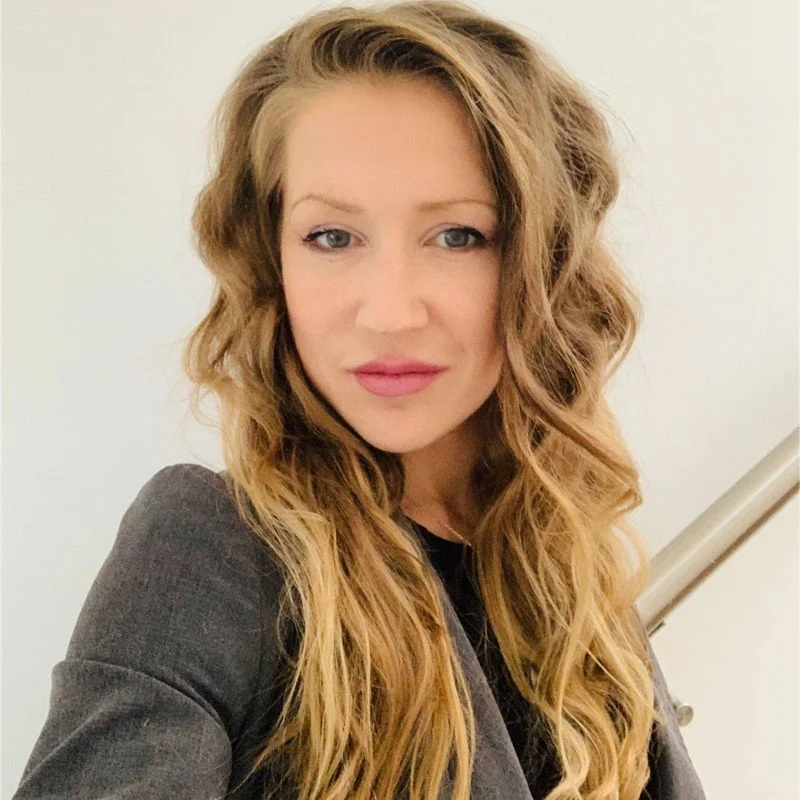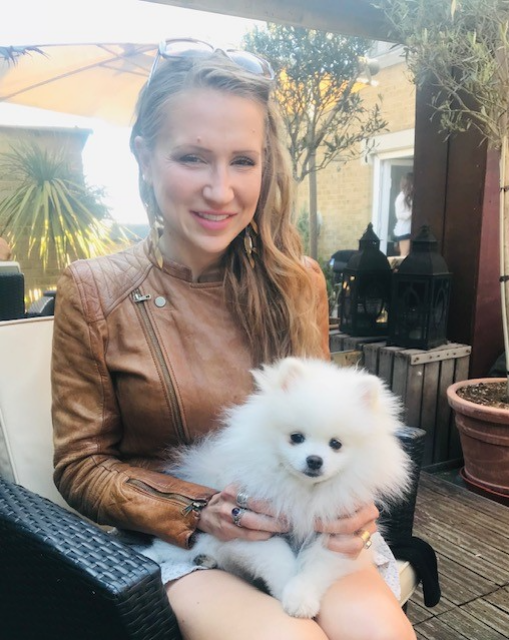Interview with Marjaana Haljala
Henrik Liimatainen
Could you please tell us a little bit about yourself and your background?
I’m originally from Espoo and graduated from Pohjois-Tapiola high school back in 1998. After a successful entrance exam I started my studies at Helsinki School of Economics (currently Aalto University) in the fall of 1998. During my studies I was very active with extracurricular affairs; in my first year I was part of the cultural subcommittee KUJ and later on I was the treasurer of KY Finance.
Moreover, I was very interested in international opportunities already during my studies. I experienced an exchange semester in the USA at Indiana University, and also did a CEMS exchange at University of St.Gallen in Switzerland. CEMS was actually the springboard for my current career since they offered me the platform to get familiar with Shell. Currently I am based in London and work with M&A projects in the Renewables and Energy Solutions team.
Why did you choose to study finance?
As a major, Finance seemed to attract the most ambitious individuals and it was very hard to get in to the program, so I think it was the challenge that intrigued me in the first place. With that being said, I was also very fascinated with the content since investing was an interest to me, and finance as a subject seemed to be very structured—the way of learning it just seemed logical to me. Finally, I felt that finance would give me a solid background of basic skills that are needed in the business world, quite similar to what an engineering degree could offer but with a business emphasis. This has definitely proven to be true during my time at Shell.
What are your fondest memories from university?
I have many fond memories from university! First and foremost my year at the cultural subcommittee KUJ was something to remember. Especially the Vappu celebrations was great fun and a culmination point for all the work we had put in to the cultural work. Despite being very active in the cultural sector, I also wanted to excel in my studies. This sometimes meant sleeping in the lecture halls of Töölö campus after a night out at KY building to ensure I was awake and ready once the morning lectures started.
You were the treasurer of KY Finance in 2000. What do you remember from that time?
I remember that we threw some fantastic events with KY Finance in 2000. I believe companies had some excess cash during the tech bubble years and were very keen to use it to arrange student events. I remember one cottage trip that was sponsored by a company that gave us almost 10,000 euros to hire the cottage and buy the refreshments for the weekend.
Moreover, my role as a treasurer obviously meant that I needed to keep our finances balanced which at times was not that easy. In 2000 KY Finance had an investment portfolio which was heavily leveraged and long in tech stocks. As we now know, the tech stocks suffered terrible losses in the spring of 2000 which caused me some headache as the treasurer.
Furthermore, at the time I was the only woman at KY Finance board, and the culture was probably even more masculine than it is today. I recall that back then there was not much talk about gender equality, and most of the events were targeted for male participants – this is something that has probably changed from those days.
What were your first internships and what did you learn from them?
During my second year I worked part-time at GE Capital and made credit decisions for their mobility business. When I reflect it to my level of studies then, the work was quite demanding and the credit decisions quite large in monetary terms. Yet, when I did a summer internship at Dynea few years later and acted as the holiday cover for their treasury manager, the monetary sums I moved around were ten or even hundred times larger than those at GE Capital. I gained a lot of confidence from those jobs after being given that much responsibility. Furthermore, I learned how to operate in large multinational corporations which was a good lesson to learn early on in my career.
Perhaps the most interesting internship I did was for the Finnish Consulate General in California, USA. There I conducted market research regarding the opportunities for Finnish companies in the energy sector, in the aftermath of California electricity crisis and Enron, and eventually wrote my master’s thesis on the topic. I also made some very good connections within the governor’s office of California.
Moreover, I learned about the issues and solutions related to climate change which has been great benefit to me at Shell.
You’ve been working at Shell since 2004. What motivated you to apply to work there in the first place?
As mentioned earlier, I got into contact with Shell through CEMS and more precisely in a career event where I had a speed dating interview with their representatives. After my experience at California I was interested in the energy sector, and looked widely into companies that operated in that industry. Furthermore, the international opportunities attracted me, and I saw a large multi-national corporation like Shell as a great place to grow and develop.
In the end the culture at Shell seemed very fitting for me compared to other options, and I decided to apply for their graduate program. I eventually got hired and although I was recruited through the London office, I started my career at Finland - my first job was to manage a Shell gas station in Käpylä. After a while I relocated to London and have been working here ever since, mostly in global roles, except for one short stint at the Hague office.
The world has changed a lot in the past decades – what do you see has been the biggest change at Shell?
It is definitely the focus on decarbonisation and the fight against climate change. When I first started at Shell they had had some challenging experiences from investing in renewable energy, and their primary business model was very different since it was focused heavily on their existing products. The paradigm shift started probably in the early 2010s, and in 2016 a dedicated business unit for “New Energies” was launched.
The macro shift to renewables was mostly started by policy guidance and subsidies especially in Europe, and has since gained a lot of traction. Nowadays we at Shell have a holistic view towards our customers, and instead of just delivering products by a single business unit we work with customers on a sector-by-sector basis to offer comprehensive suite of products and services to help each sector find its path to net zero. Moreover, Shell has a clear target to be a net-zero emissions energy business by 2050, and investments in renewables, low-carbon fuels, carbon capture technologies and nature based offsets is the key to achieve that.
Nowadays you are working with M&A within the Renewables and Energy solutions team. How is climate change and decarbonization present in your work?
In its recent strategy, Shell has stated that is has a focus on decarbonization at all levels of the company. Thus, it is natural that my work in the renewables and energy solutions M&A team is all about addressing climate change. My work includes leading deal teams that deliver acquisitions of companies that have developed technologies for the decarbonization ecosystem. To give an example, we recently bought ubitricity, which is a German company that works with local authorities to integrate electric vehicle charging into existing street infrastructure such as lamp posts and bollards. All in all, my work includes having a wide understanding of investment possibilities in the field of renewable energy.
Besides your job, you have done volunteer work in Malawi and Thailand. Can you tell us a bit more about that?
Some years ago I did some fundraising for an NGO called Ripple Africa and their malnutrition project in Malawi. The idea of the project was to help locals to gain land and cultivate it to produce agricultural products with high nutrition levels. I travelled to kickstart the project at Malawi and stayed there a few weeks to oversee it. Another volunteer experience I have is from an orphanage in Thailand, where I taught English and helped to build a mudbrick building for them. Volunteer work is something I have had a calling towards and I’m very happy to have had the opportunity to gain such experiences.
What kind of goals you have for your career in the future?
I’ve never had a clear career roadmap, which I think has been a good thing since it has allowed me to engage in new exciting opportunities that I might’ve not thought about if I had one. Nevertheless, there are some themes I definitely want to work with in the future. First of all, I want to continue my work with decarbonisation and energy transition. Right now I feel that a large corporation like Shell is an environment where I am an in a position to have the largest impact within that theme.
Secondly, I want to be in a leadership role which enables me to cultivate talent and mentor my team members – nurturing future talent is very rewarding for me. Moreover, I believe that the future is based on partnerships and ecosystems, and I want to be in a position to build them.
Finally, I want to have even more business performance responsibility in the future while maintaining the global working environment I’m used to.
When did you first hear about Aalto Finance Alumni and have you participated in the alumni activities so far?
I attended one AFA event in the summer of 2019 and enjoyed it a lot! Unfortunately, I have not been able to be that active within the alumni community since I’m based in London and most of the events have been in Finland.
Ramping up AFA operations outside Finland, e.g. in London, could be a great initiative in the future!
Henrik Liimatainen is a previous Editor-in-Chief of AFA Quarterly.


